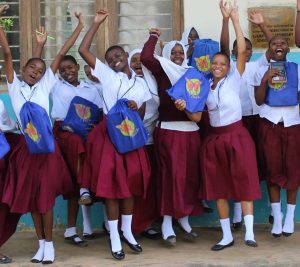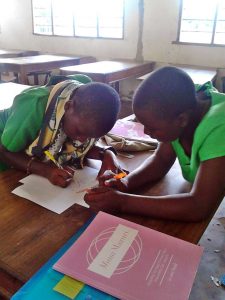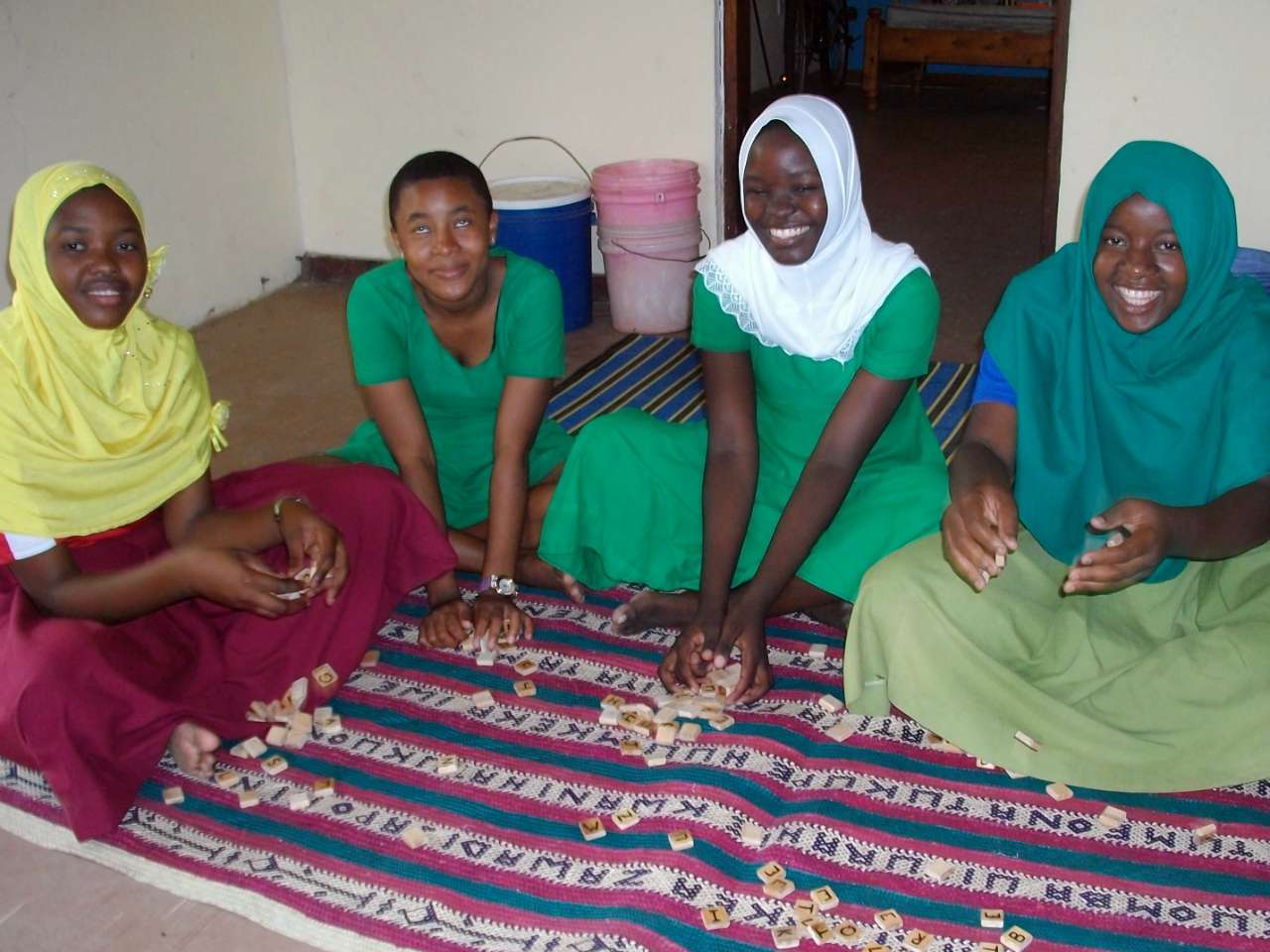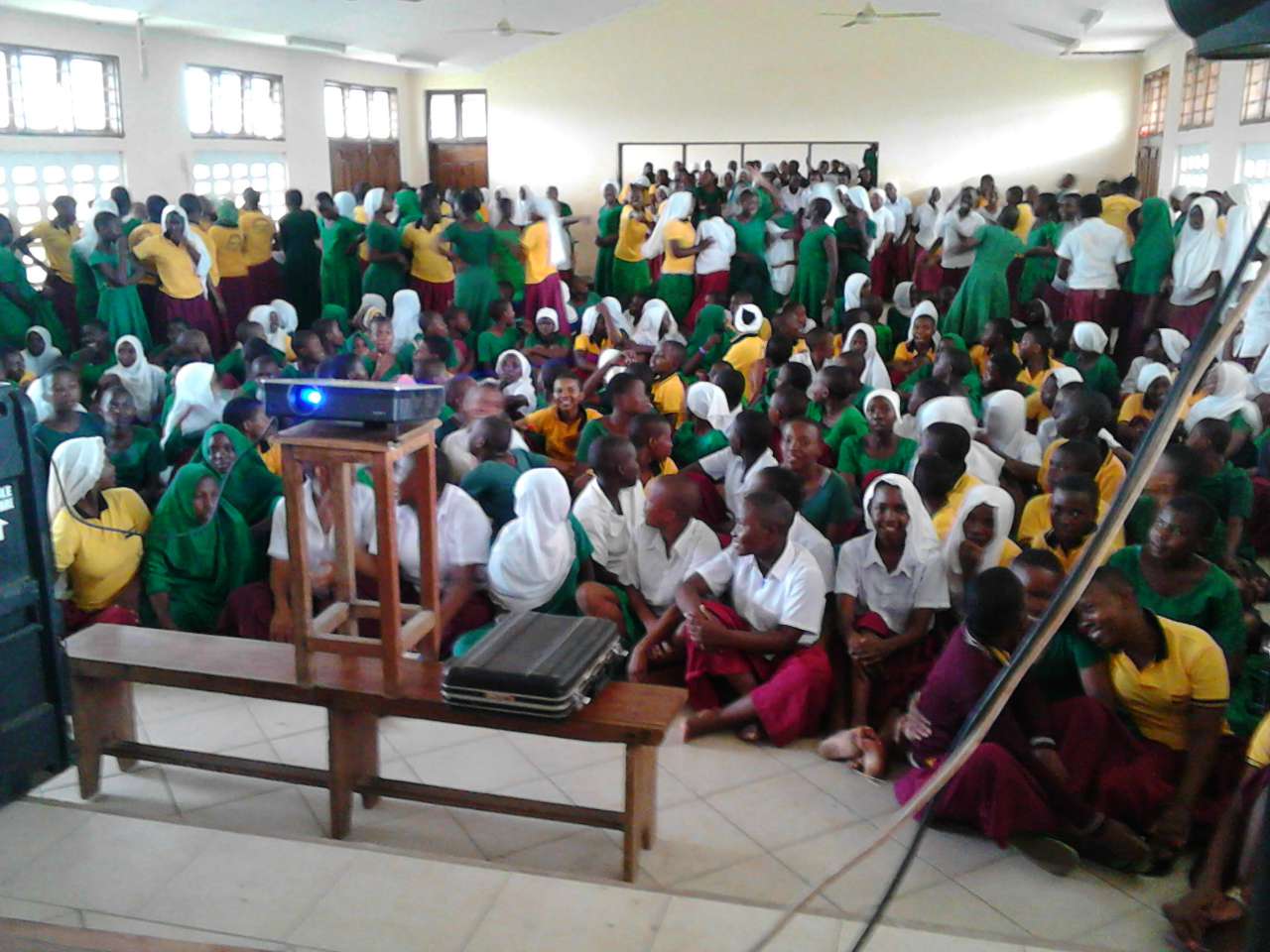This project is made possible through the partnership of WATER CHARITY and the NATIONAL PEACE CORPS ASSOCIATION. ![]()
This is a project under the LET GIRLS LEARN Program, a collaboration of First Lady Michelle Obama and the Peace Corps to expand access to education for adolescent girls around the world!
Location
Njia Nne, Kilwa District, Lindi Region, Tanzania
Community Description
Ilulu Girls’ Secondary School is an all-female boarding school that provides a secondary (high school) education to 650 girls. The school is in the coastal village of Njia Nne, which is located along the main road that connects Dar Es Salaam to Lindi Town. It is an 8-minute walk from the school grounds to the village’s main market area where one can interact with the people from the village.
 In a country where educational opportunities are limited, and where females are not encouraged to obtain an education, especially in rural villages, this school provides an excellent education to girls from all over the Lindi region. The girls who study here are held to high standards and are encouraged and expected to obtain a high education – including post-secondary school. Unlike at other schools in the region, these girls are being taught science. They are also completing female empowerment programs, which have encouraged them to pursue career goals such as becoming a nurse, doctor, lawyer, or businesswoman.
In a country where educational opportunities are limited, and where females are not encouraged to obtain an education, especially in rural villages, this school provides an excellent education to girls from all over the Lindi region. The girls who study here are held to high standards and are encouraged and expected to obtain a high education – including post-secondary school. Unlike at other schools in the region, these girls are being taught science. They are also completing female empowerment programs, which have encouraged them to pursue career goals such as becoming a nurse, doctor, lawyer, or businesswoman.
Problem Addressed
At the Ilulu Girls’ Secondary School, 48% of all students must go to the hospital for diarrhea and waterborne diseases each week. A survey showed that the students, on average, consume about 1 liter of water a day at home, but only 1 cup while at school (and this is usually their one cup of chai each morning). When asked why they don’t drink more water, the students responded that the water was not safe and they didn’t want to continue getting sick or having diarrhea. With limited staff and resources, it is currently impossible to provide the students with clean drinking water by boiling the water. The school needs a different, more reliable way to supply safe, clean drinking water for the students.
Project Description
This project is to install two in-ground rainwater catchment tanks and set up a solar water disinfection (SODIS) treatment plan. This will provide enough water for each girl to have 1 liter of clean drinking water each school day.
The rainwater catchment tanks will have a height of 5 meters, with 1 meter above the ground and 4 meters below it, and will have a concrete base that is 30 cm thick. The tanks will be filled by a gutter system, which will be set up from the roof of the school’s buildings. Like almost all the other water sources in the region, a bucket attached to a rope and pulley system will be used to remove the rainwater from the tanks.
For this project, all labor expenses will be covered by the school. This includes finding volunteer laborers and using staff laborers to complete the work. The holes will be dug by volunteers and laborers. The aggregates (normal stones, gravel, and sand) will be contributed by the school and community – they will be collected from the village and surrounding villages. The bricks will be made by trained laborers working under the direction of the engineer who will be overseeing the entire process.
 A Solar water disinfection (SODIS) system is very easy to set up. A plastic water bottle (1.5 L disposable drinking water can be purchased for about $0.50) is sufficient and acceptable for reuse. The water bottle is cleaned and filled with water. Then it is placed in full sunlight for one day (at least six hours). The sun’s UV rays purify the water.
A Solar water disinfection (SODIS) system is very easy to set up. A plastic water bottle (1.5 L disposable drinking water can be purchased for about $0.50) is sufficient and acceptable for reuse. The water bottle is cleaned and filled with water. Then it is placed in full sunlight for one day (at least six hours). The sun’s UV rays purify the water.
Each student will have two 1.5 liter water bottles. They can drink from bottle #1 while bottle #2 is sitting out in the sun and then they can switch the following day. This is a cheap, reliable way to provide the girls with safe, clean drinking water.
Project Impact
650 female boarding school students will benefit from this project.
Peace Corps Volunteer Directing Project
Caitlin Baumhart
Monitoring and Maintenance
Upkeep, maintenance, and monitoring will be conducted by school guards, the Teacher on Duty (TOD) and chosen student leaders.
Comments
The Ilulu Girls’ Secondary School provides teenage females with an exceptional opportunity to learn and be successful by providing them with support, encouragement and education which they would not receive at other day schools in their villages. The girls continue to excel in the sciences and hope to do great things with their lives. This project can further help them by stopping the spread of preventable waterborne diseases, and contributing towards making them better, more successful students.
This project has been funded by Pearson, and its employees, with additional help from an anonymous donor.
This Tanzania project is part of our East Africa Water and Sanitation Program. Visit that page, where your donation will go for similar projects.
This project is part of our ongoing Let Girls Learn Initiative.
This project has been completed. To read about the conclusion, CLICK HERE.

